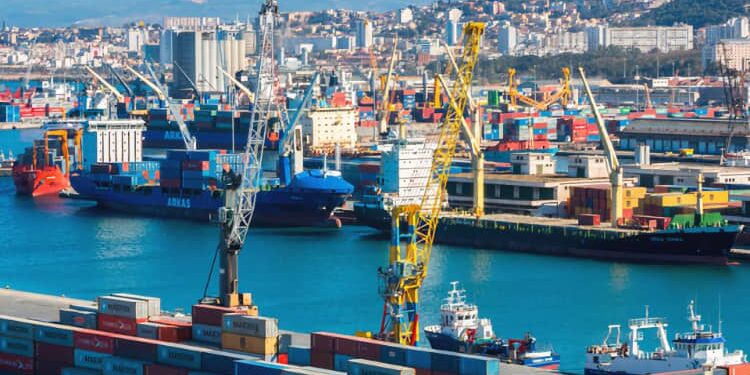The Diplomat
The European Commission yesterday asked the Government of Algeria for explanations for the obstacles to investments and exports that companies from several countries of the European Union have encountered since 2021, including Spain; a step that involves launching the bilateral dispute mechanism and that, ultimately, may lead to the suspension of the Association Agreement between the EU and Algeria.
The Community Executive accused Algeria of failing to comply with the Association Agreement between both parties and will seek to find with the authorities of the North African country a “mutually satisfactory solution” to resolve the matter, the institution reported in a statement.
The step taken yesterday implies the opening of consultations between the commercial teams of both sides and, if an agreement is not reached, the next stage would be the launch of an arbitration panel. Ultimately, the suspension of the agreement, which has been in force since 2005, could be adopted.
The Trade spokesperson of the European Commission, Olof Gill, specified in a press conference the list of restrictions imposed by Algeria that the EU wants to resolve in this dispute, among them those applied to the exports and imports of goods and the movements of capital with Spain.
Although the restrictions on the EU began earlier, diplomatic relations between Algeria and Spain entered into crisis in March 2022, after Pedro Sánchez’s Executive showed its support for the Moroccan Government’s proposal for the autonomy of Western Sahara.
In fact, on the list of trade obstacles applied by the Algerian side and that the EU wants to resolve in the consultations is also the ban on importing marble and ceramic products, which affects many Spanish exporters.
However, the community spokesperson insisted that the restrictions do not only affect Spain since the list of Member States that suffer from them is “broader.” He did not want to specify whether Brussels has taken the step of launching the dispute at the request of Spain, arguing that the institution is “in contact at all times” with the Twenty-seven.
In addition to the above restrictions, Brussels questions the non-automatic import licensing system managed by the Algerian Ministry of Commerce, and in which “imports do not take place with the liberalization conditions set in the Association Agreement” because the requests for European exporters are either not resolved or are granted with “significant delays”.
The Commission criticizes the local content requirement of at least 30% for car manufacturing, the 49% limit on foreign ownership of companies importing goods to Algeria, the non-application of trade quotas agreed in the agreement and the obligation importers to reorganize their structures into smaller companies dedicated exclusively to homogeneous activities.
The Community Executive denounces, in summary, the “general” policy that Algeria is developing to replace imports with local production.
According to data from the European Commission, the total value of European exports to the African country has decreased from 22.3 billion euros in 2015 to 14.9 billion last year.
It is the second time that the EU has opened a dispute mechanism with Algeria under said agreement, since in June 2020 it opened the first due to the increase in tariffs and the veto on imports of European cars decreed by the Algerian authorities, which They were eliminated within the framework of those “constructive” consultations.
Sources from the Ministry of Foreign Affairs consulted by Europa Press did not evaluate the decision adopted by the Commission. They only pointed out that the Government will always defend “Spanish companies” with interests in Algeria, while reiterating the desire to “have the best commercial relations” with the Maghreb country.







